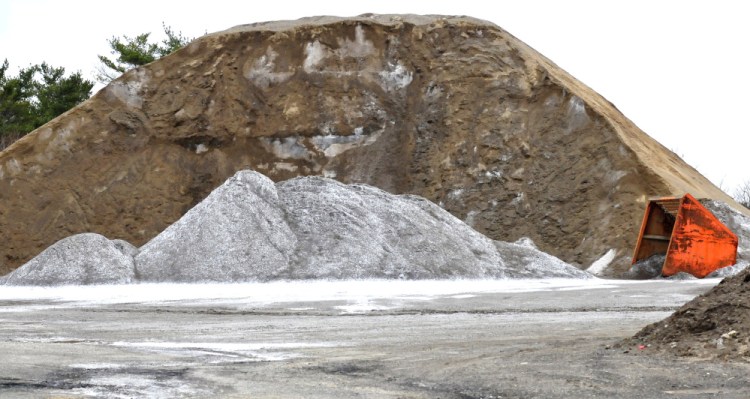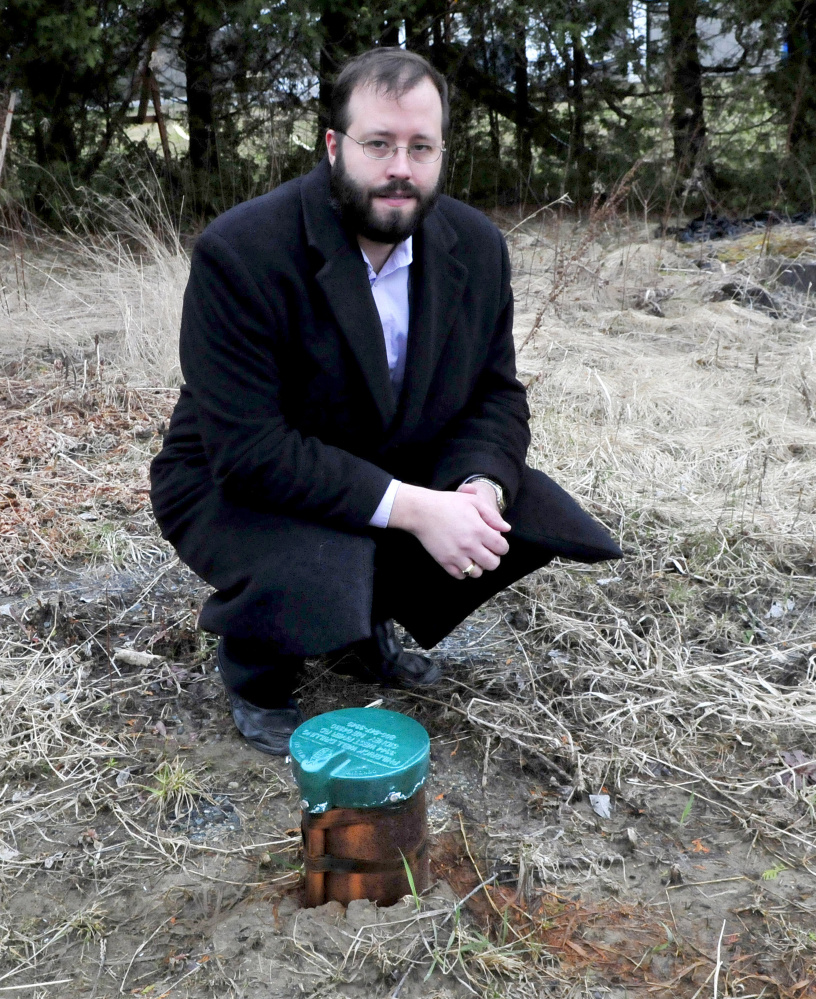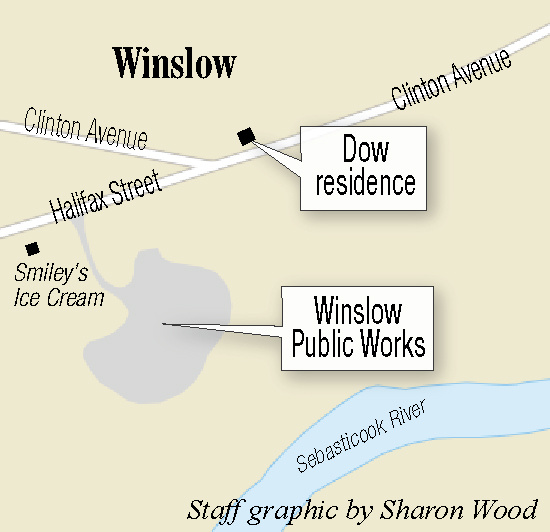WINSLOW — A dispute between a resident and the town government over a well poisoned by salt has been settled.
The Town Council has agreed to pay Cory Dow $16,739 in a settlement without prejudice, meaning that the town did not admit any liability in the issue. The settlement covers Dow’s cost to hook up to a public water line, as well as legal costs.
“I’m happy that things got settled and we can move on,” Dow, who lives on Clinton Avenue, said Wednesday. “It’s gonna be nice to move forward.”
In 2015, Dow found that his well was contaminated with sodium and chloride, or salt. In a water test from April 2015, the water in Dow’s well measured 2,800 milligrams of sodium per liter. The healthy limit for sodium in drinking water is 20 milligrams per liter, and too much of it can increase a person’s risk of cardiovascular disease and high blood pressure.
Dow blamed the town, pointing to a report by the Maine Department of Environmental Protection that a nearby town salt pile was the problem. But the town government had its own study suggesting it was not at fault.
Dow’s water also had a chloride level of 6,200 milligrams per liter. Once the concentration reaches 250 milligrams per liter, chloride will cause a salty taste in drinking water, according to the Environmental Protection Agency. Although chloride doesn’t cause health problems, it can corrode pipes, plumbing and pumps.
As the taste of his water worsened and salt built up in his furnace, Dow decided to shut off his well and spend $10,000 to connect to a public water line.
Dow suspected the contamination came from an uncovered pile of road salt at the Winslow Public Works garage, which is about 1,000 feet away from his house. A report from the Maine Department of Environmental Protection in January found that the well was being polluted by salt water flowing from under the salt pile.
“From what the DEP provided, we still feel strongly that that was the source of contamination,” Dow said.
Previously, though, the town had denied any responsibility for the contamination and released its own report in the summer of 2015 that said someone was probably pouring salt into the open well to contaminate it.
Another town-issued report was completed this summer and the results “don’t rule out” that the town’s salt and sand pile is to blame, said Town Manager Michael Heavener.
“Someone is responsible for your unfortunate situation, but it is not the town of Winslow,” town attorney Bill Lee wrote in a July 15, 2015, letter to Dow.
After being confronted with the DEP’s findings, the town became willing to negotiate a settlement with Dow. It’s uncommon for the DEP to investigate specific cases such as Dow’s, which is why it took months to compile the report.
According to the DEP report, Winslow’s salt and sand pile was exempted from a DEP rule that requires covered salt storage because it was listed on the lowest priority by the state and was not within 300 feet of a private well.
The town did further testing to see if it could rule out the salt pile as the source of contamination, Heavener said. Because the tests didn’t reach that conclusion, the town thought it was more prudent to save money on legal fees and settle with Dow instead.
“Certainly our salt and sand pile could have been the source of contamination,” Heavener said. “We’ll never know 100 percent for sure.”
Madeline St. Amour – 861-9239
mstamour@centralmaine.com
Twitter: @madelinestamour
Send questions/comments to the editors.






Success. Please wait for the page to reload. If the page does not reload within 5 seconds, please refresh the page.
Enter your email and password to access comments.
Hi, to comment on stories you must . This profile is in addition to your subscription and website login.
Already have a commenting profile? .
Invalid username/password.
Please check your email to confirm and complete your registration.
Only subscribers are eligible to post comments. Please subscribe or login first for digital access. Here’s why.
Use the form below to reset your password. When you've submitted your account email, we will send an email with a reset code.